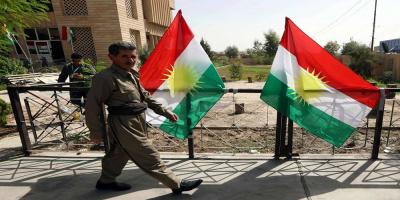One of the major Kurdish parties in Iraq, the Patriotic Union of Kurdistan (PUK), ended a months-long boycott of the Kurdistan Regional Government meetings with its main coalition partner on Sunday, easing tensions between two factions that fought a civil war in the 1990s.
PUK ministers attended the Kurdistan Regional Government meetings for the first time since the assassination of an intelligence officer in Erbil last October, according to statements from three government officials.
The conflicts had raised concerns for Western nations, particularly the United States, which supports both factions, with the latest support manifesting in efforts to combat the Islamic State (ISIS). A long-standing power struggle exists between the ruling Kurdistan Democratic Party (KDP), to which Kurdistan Regional Government Prime Minister Masrour Barzani belongs, and the smaller coalition partner, the PUK, led by Pavel Jalal Talabani. The ruling party has largely managed to contain the mistrust since the civil war.
However, the KDP accused the PUK of being responsible for the assassination of intelligence officer Hawkar Abdullah Rasul, leading to a series of incidents that disrupted power-sharing arrangements. The PUK vehemently denied these allegations, stating that they are politically motivated.
Political relations deteriorated to the extent that the party’s ministers boycotted the Kurdistan Regional Government meetings. Last week, Barzani and Deputy Prime Minister Qubad Talabani met for the first time since the assassination and agreed to work together to overcome their differences, according to statements posted on their Twitter accounts along with a photo of them looking at each other and smiling.
The breakthrough came days after a visit from a U.S. State Department delegation, including Barbara Leaf, Assistant Secretary of State for Near Eastern Affairs, to Erbil, where they met with leaders from both sides. Analysts noted that the dispute distracts attention from what the government needs to address concerning public service issues and high unemployment rates in the oil and gas-rich region.




